Since its beginning in 1903 as a field station for students and scientists at Harvard University and New York University, BIOS has hosted hundreds of students from colleges and universities around the world. Over the years, students conducting research at BIOS have used their experiences as springboards for acceptance into graduate degree programs, a variety of technical and research positions (both at BIOS and abroad), and—frequently—a scientific publication in a peer-reviewed journal.
Tiny Algae, Surprising Findings
March 13, 2017
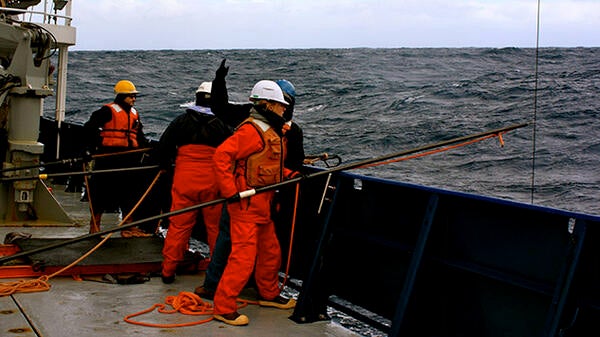
Chemical oceanographer Nick Bates’s ongoing study of the ocean-atmosphere interface sheds light on a group of tiny, beautiful marine plants called coccolithophores, which have been found to release carbon dioxide into the atmosphere in regions near Antarctica.
Calling All Volunteers
March 13, 2017
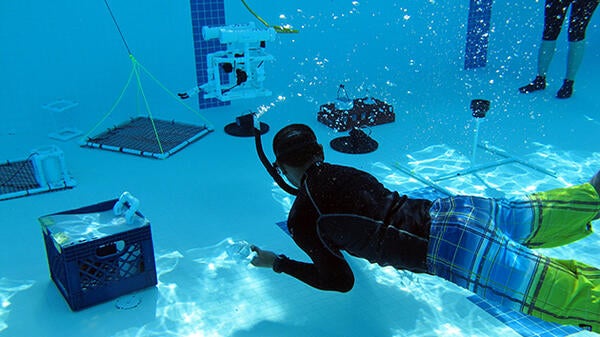
Like to snorkel? Interested in supporting emerging marine engineers? Several dozen volunteers from BIOS and the Bermuda community are needed to assist on Saturday, April 22, as 27 teams of middle school students test their mission-tasked Remotely Operated Vehicles (ROVs) during the annual island-wide robotics challenge.
A Royal Visit to BIOS
March 12, 2017
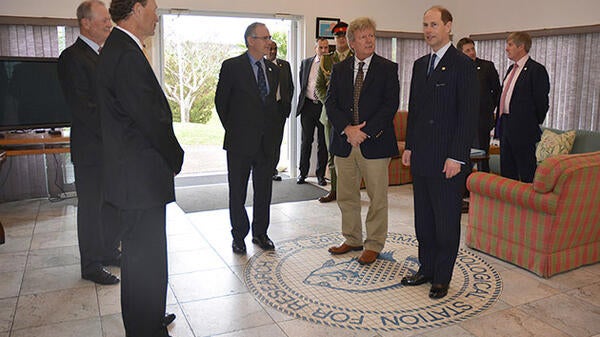
Prince Edward, Earl of Wessex, toured BIOS this month during a visit to Bermuda to celebrate the 50th anniversary of the country’s Duke Of Edinburgh International Award.
Celebrating 25 Years of Undergraduate Research Success at BIOS
February 12, 2017
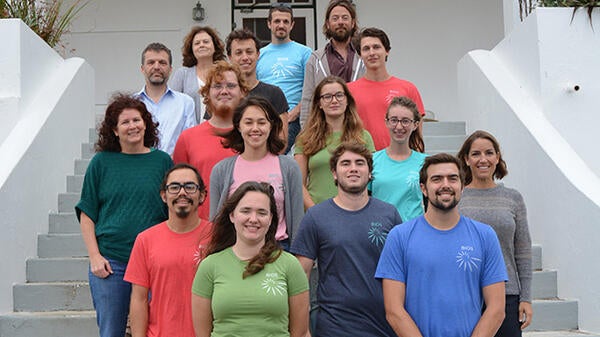
In 1991, a group of undergraduate students arrived in Bermuda to spend a semester with BIOS faculty and staff who mentored their independent marine science research projects. The program, known as Research Experiences for Undergraduates, or REU, was designed to provide a semester-long, rigorous research experience enhanced by field trips on land and at sea. Since then, nearly 200 university students have participated on a variety of projects, with themes ranging from climate change to coral reef ecology. Their work culminates in a final, formal presentation to BIOS faculty and staff.
BIOS Scientists Make Room for Flumes
February 12, 2017
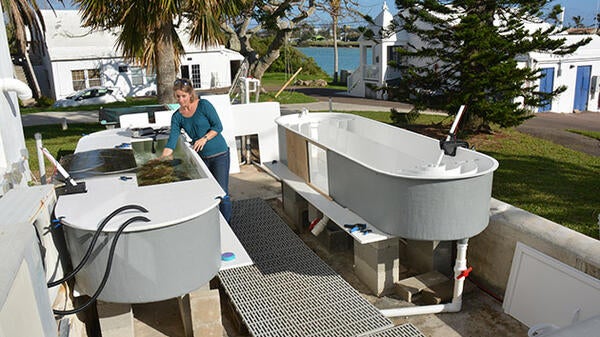
When scientists study coral reefs, they are often interested in figuring out key components of reef health; specifically, primary production—or photosynthesis—and calcification, the rate at which new reef growth occurs. For decades this has meant time and labor-intensive fieldwork, with scientists documenting global reef condition and linking what they see underwater with lab-based experiments and measurements.
Living, Breathing, and Learning Science
February 12, 2017
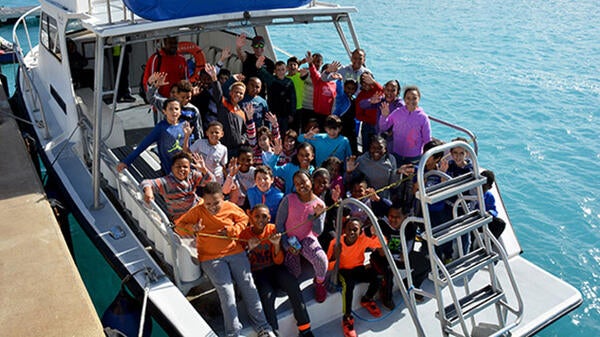
Last month a group of 39 P6 (primary school level 6, or grade 5 in the U.S. school system) students from Harrington Sound Primary School spent three days and two nights at the Bermuda Institute of Ocean Sciences (BIOS), where they learned about the local marine environment and potential career paths in ocean science research, technology, and education.
New Study Links Global Ocean Processes with Local Coral Reef Chemistry
November 27, 2015
Five years of data collected on reefs and offshore in Bermuda shows that coral reef chemistry – and perhaps the future success of corals – is tied not only to the human carbon emissions causing systematic ocean acidification, but also to seasonal and decadal cycles in the open waters of the Atlantic, and the balance of biochemical processes in the coral reef community.
Remembering John A. Knauss: Oceanographer, Visionary, and BIOS Trustee
January 01, 2016
It is with sadness that BIOS announces the death of oceanographer John A. Knauss, 90, who served the Institute for 10 years as a board member and later as a trustee until 2005. Knauss, whose research and advocacy helped promote marine science, policy, management, and ongoing study of the world’s oceans, was founding Dean of the Graduate School of Oceanography at the University of Rhode Island. There, current BIOS trustee John Farrington recalls Knauss wore many hats with grace and dedication. Knauss was Farrington’s professor of a physical oceanography course in 1968, the same year he was part of a Presidential-Congressional Commission working on the influential report “Our Nation and the Sea.” “He often would arrive directly from the airport, having been at a Commission meeting in Washington, DC, and teach the class,” Farrington said. “He set a high standard as dean and professor that many, including me, have striven to achieve over the years.” We join the University of Rhode Island in commemorating this loss.
Grant Catalyzes New Study of Ocean Microbes at BIOS
January 01, 2016

St. George’s, Bermuda –– An anonymous donor has awarded BIOS $6 million to support collaborative research on the distinctive microbial communities of the Sargasso Sea over the next five years. The research will leverage ocean measurements and ongoing research at the Bermuda Atlantic Time-series Study (BATS) site, bringing new collaborations and technologies to study the ocean’s smallest life forms.